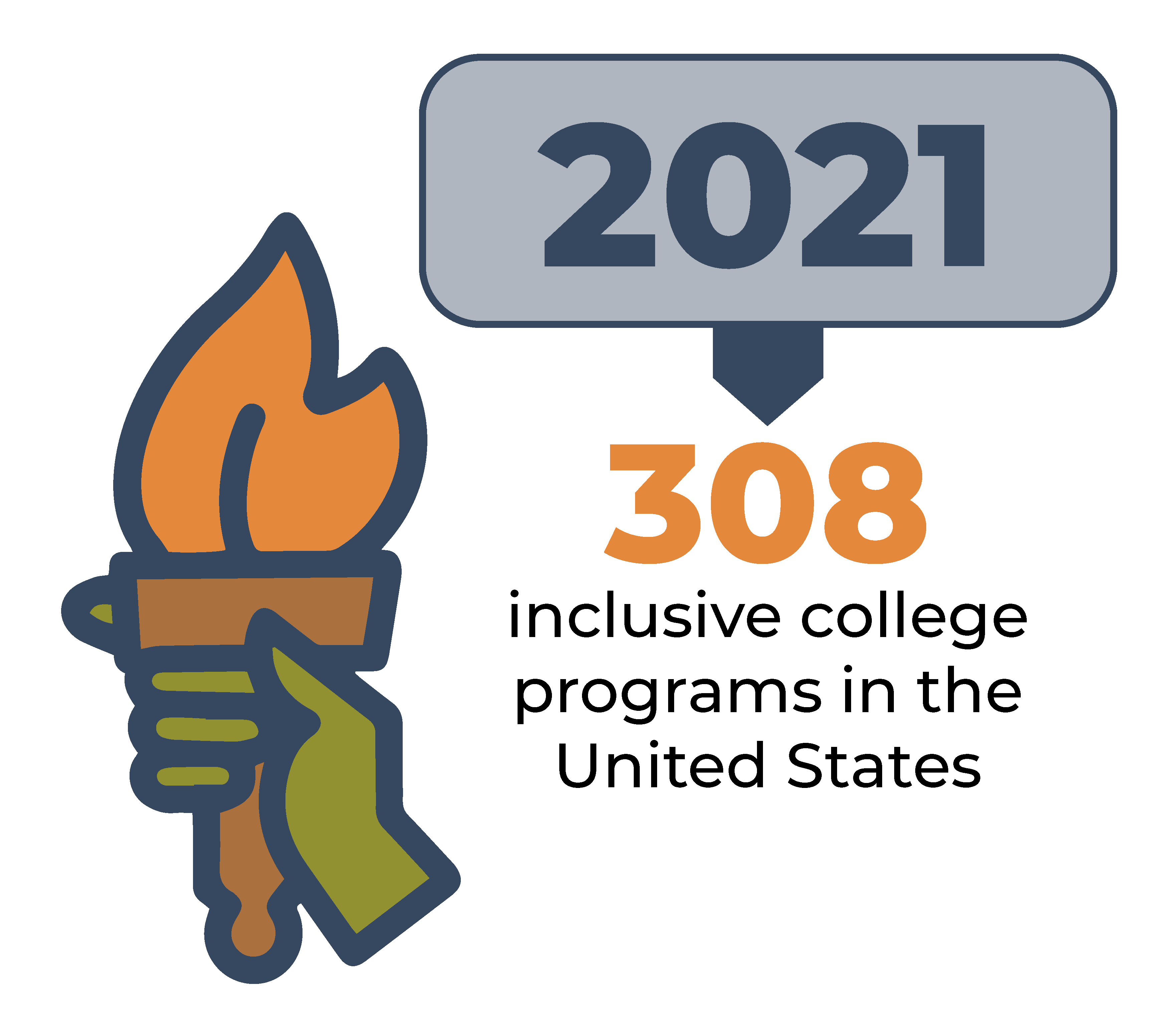Inclusive College Education
Opening doors to greater opportunities and experiences for youth and adults with IDD.
What is Inclusive College Education?
Historically, students with intellectual and developmental disabilities (IDD) have struggled to attend college or university after graduating from high school. To increase the accessibility of higher education to students with IDD, many universities have developed inclusive college programs. These programs provide students with academic, vocational, and independent living experiences that help students work towards their personal goals.
The number of inclusive college programs available to students with IDD have drastically increased since the passage of the Higher Education Opportunity Act (HEOA) in 2008. Since 2008, the number of inclusive college programs has grown from 148 to over 300 programs today.
Although the types of programs and services vary greatly across inclusive college programs, most programs offer:







